carving my own path | 19 psych undergrad | flight attendant | ex-semi-pro dancer˚ ༘♡ ⋆。˚
Don't wanna be here? Send us removal request.
Text
Took me until about halfway through college before I realized “study” means “play with the material in a variety of ways until you understand it” and not just “read the assigned chapters and do the homework” and I think that probably should have been discussed at some point prior to that.
90K notes
·
View notes
Text
jan 7th | spring semester begins tomorrow
completed tasks today:
cleaned out my freezer
went grocery shopping
reorganized my fridge
cleaned the apartment
folded and put away my laundry
drank 2L of water
meal prepped — burritos, breakfast sandwiches, zucchini muffins
reviewed course syllabus and chapter 1 of my first class
exhausted!! also went for a massage and got my nails done, but thoae aren't really chores, are they.
I'm lying on the couch now & don't want to move anymore... I'd like to melt into the couch actually and become one with it
I am so excited for my first day back, I've been so bored without the fun stress it gives me
1 note
·
View note
Text
1 day before spring semester | jan 7th
tasks for today
put on dishwasher
go grocery shopping
set out ingredients for meal prep
massage appointment & nail appointment
unload dishwasher
put away laundry
meal prep! — burritos, breakfast sandwiches, zucchini muffins
review course outlines & purchase textbooks
2025 goal reminders to self:
kindness is the default
go to the hotel gym every layover
strength train x3 week
stretch & abs every morning
8 hours of sleep is more important than cramming !!!
replace doomscrolling in freetime with one of the following:
reading a book
hydrating
cleaning
dancing
stretching
going on a walk
making a pinterest board
making a blog post on here!!
adding new events/tasks to my calendar
My lack of posting throughout the semester was a result of overworking myself, then falling ill which resulted in a month of missed classes. I came out with a 3.8 GPA for my first semester back, so I can't be too hard on myself!!
All my courses this semester are psychology focused which I'm incredibly excited for! Going to be learning in depth about developmental psychology, psychological illnesses, and heavy on stats & research. Looking forward to it!
1 note
·
View note
Text
30 THOUGHT-PROVOKING QUESTIONS TO HELP YOU BECOME MORE SELF-AWARE
❦ how much self-control do i have with things that i know are bad for me, but tend to indulge in?
❦ how do i respond to someone who is different from me or whose ideals and beliefs i don't agree with or understand?
❦ how do i deal with being misperceived or misunderstood?
❦ how do i respond when someone judges me, makes fun of me, or calls me names?
❦ how do i deal with other people's mistakes and unpleasant behavior?
❦ how do i deal with people who have hurt me in the past?
❦ how do i spend my free time?
❦ how do i deal with negative people?
❦ how do i deal with stressful situations? do i tend to worry a lot? what else do i do?
❦ how do i deal with inconvenient life situations?
❦ how do i respond to situations that i have no control over?
❦ how do i deal with negativity in my environment?
❦ how do i deal with challenges in my life?
❦ how do i respond to situations that force me to get out of my comfort zone?
❦ how motivated am i to change my life for the better?
❦ how much do i follow through on what i preach and talk about?
❦ how do i deal with uncertainty, the unknown or a future event that i have no control over?
❦ how do i respond to obstacles, hardships, and "bad" things that happen in my life?
❦ how do i respond when i don't get what i want?
❦ how fulfilling is my everyday life?
❦ how do i respond to new ideas and new ways of thinking?
❦ how do i respond to bad or inconvenient news?
❦ how do i deal with the violence, hate, and suffering in the world?
❦ how do i recharge, rejuvenate, and replenish my energy?
❦ how much do i prioritize spending time and energy on myself and on my passions?
❦ how do i deal with change? new job, new house, new lifestyle, new people, new rules, new technology...do i tend to avoid it, welcome it, fear it, like it, complain about it, stress out about it, worry about it?
❦ how do i deal with emotional pain?
❦ how do i respond when plans change or plans get cancelled without my say so?
❦ how do i respond when i make a mistake or when i fail at something?
❦ how do i deal with rejection?
6K notes
·
View notes
Text
I just hope that no matter how many times this world tries to harden me and turn me into a cold person, I remain soft. may I still be compassionate, full of love, and see hope in everything, and may I never become something that once broke me.
15K notes
·
View notes
Text
Mastering academic excellence
Becoming an academic weapon is about more than just studying hard, it’s about studying smart.
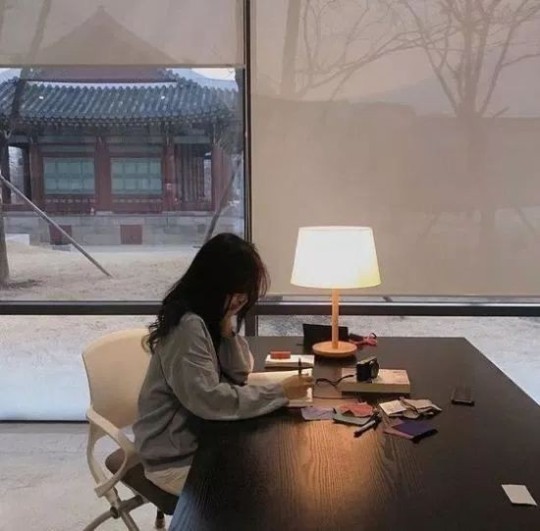
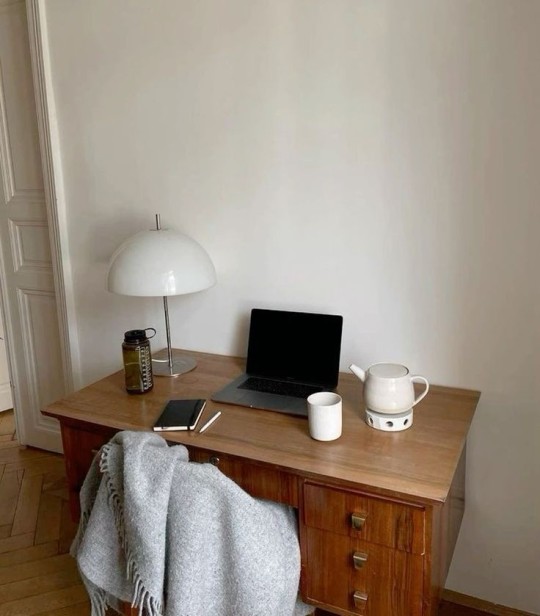
1. The power of a minimalist study space
Your study environment plays a crucial role in your ability to concentrate and absorb information. A cluttered desk or disorganized room can lead to distractions, stress, and reduced productivity. On the other hand, an orderly and minimalist space promotes clarity of thought and focus.
Why Minimalism Matters
Reduces Distractions A minimalist setup limits visual and mental distractions. With fewer items in your field of vision, your brain can focus more on the task at hand.
Promotes Calmness An organized space creates a sense of calm, reducing stress and anxiety, which are common barriers to effective studying.
Enhances Efficiency Knowing exactly where your materials are saves time and keeps you in the flow of your work, avoiding interruptions caused by searching for misplaced items.
How to Create the Ideal Study Space
Declutter Regularly Keep only essential items on your desk. Store books, papers, and other materials neatly in drawers or shelves.
Personalize Mindfully Add a few personal touches, like a plant or a motivational quote, but avoid overloading your space with unnecessary objects.
Ensure Comfort Choose a comfortable chair, good lighting, and a desk at the right height to prevent physical discomfort during long study sessions.


2. Mastering active learning techniques
Active learning is the cornerstone of effective studying. Unlike passive methods, such as simply reading or highlighting, active learning engages multiple areas of your brain, enhancing comprehension and retention.
Key Active Learning Techniques
Summarization After reading a section of your textbook or attending a lecture, summarize the main points in your own words. This forces you to process the information deeply, improving understanding and memory.
Self-Testing Regularly quiz yourself on the material. This not only reinforces your knowledge but also highlights areas where you need further review. Tools like flashcards or apps such as Anki can be particularly effective.
Teaching Others Explaining concepts to others is one of the best ways to solidify your understanding. This could be done with a study partner, in a group setting, or even by teaching an imaginary audience.
Mind Mapping Create visual representations of the material, such as diagrams or mind maps. This technique helps you see connections between ideas and organizes complex information into a more digestible format.
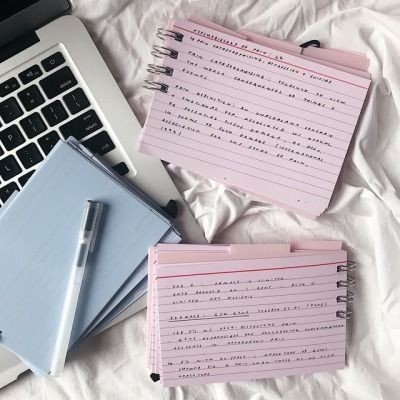
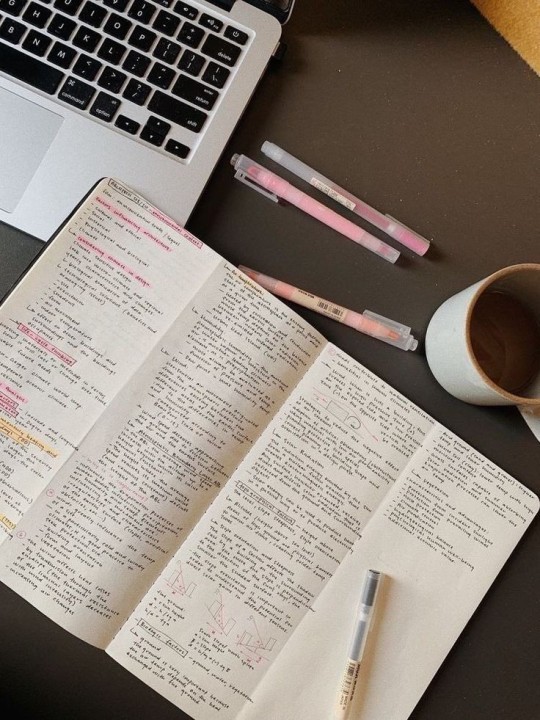
3. Study aids for enhanced learning
Study aids are tools and resources that can support and enhance your learning process. When used correctly, they can make studying more efficient and effective.
Types of Study Aids:
Flashcards Ideal for memorization, flashcards help reinforce knowledge through active recall and spaced repetition. Digital flashcards allow for easy organization and accessibility on the go.
Mind Maps These visual tools help break down complex concepts and illustrate relationships between ideas, making it easier to grasp and remember large amounts of information.
Practice Tests Taking practice exams familiarizes you with the format and types of questions you might encounter, reducing test anxiety and highlighting areas for improvement.
Educational Apps Numerous apps cater to various aspects of studying, from organization (Notion, Evernote) to subject-specific learning (Duolingo for languages).
How to Use Study Aids Effectively
Incorporate Them Regularly Don’t wait until the last minute to use study aids. Regular integration into your study routine ensures continuous reinforcement of material.
Customize Your Tools Tailor flashcards, mind maps, and other aids to suit your learning style and the specific material you need to master.
Combine Methods Use a mix of study aids to address different types of content and to keep your study sessions dynamic and engaging.
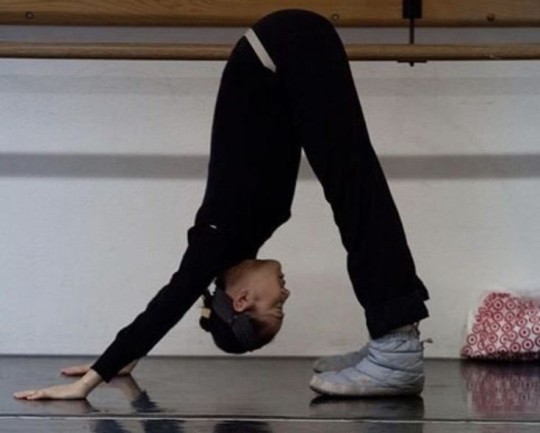
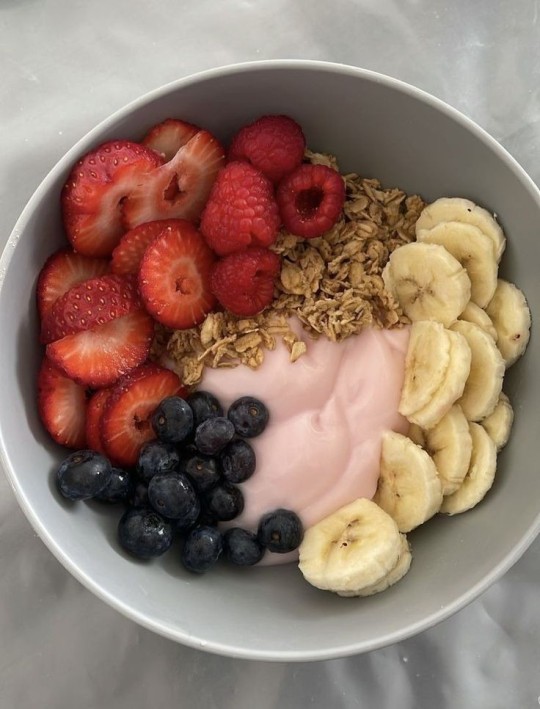
4. Staying Healthy
MENS SANA IN CORPORE SANO
The ancient adage "mens sana in corpore sano," meaning "a healthy mind in a healthy body," underscores the importance of physical well-being in achieving academic success. Neglecting your health can lead to burnout, decreased cognitive function, and lower academic performance.
Physical Health and Academic Performance
Nutrition A balanced diet fuels your brain, improving concentration, memory, and energy levels. Incorporate brain-boosting foods like fruits, vegetables, nuts, and fish rich in omega-3 fatty acids.
Exercise Regular physical activity increases blood flow to the brain, enhances mood through the release of endorphins, and reduces stress. Even short, daily exercise sessions can make a significant difference in your mental clarity and stamina.
Sleep Adequate sleep is essential for memory consolidation and cognitive function. Aim for 7-9 hours of quality sleep each night to ensure you are well-rested and ready to tackle your studies.
Mental Health and Academic Success
Stress Management Practice mindfulness techniques such as meditation or deep breathing to manage stress. Regular breaks during study sessions can also prevent burnout.
Work-Life Balance Ensure you have time for relaxation and social activities. A balanced life contributes to mental well-being, which in turn supports academic success.
Positive Mindset Cultivate a growth mindset, viewing challenges as opportunities for growth rather than as obstacles. This perspective not only enhances resilience but also keeps you motivated in your academic pursuits.
[photos from Pinterest]
991 notes
·
View notes
Text
<333
grow by choosing how you react to setbacks.
"well, it's not like panicking will make the bus come any faster."
when it comes to the lifestyle of bettering yourself, a large growth-related element of this practice often flies under the radar, & that is the choice of how you react to unexpected/unwanted obstacle that are thrown your way.
these could be drawbacks thats are within your control, or out of your control. life is unpredictable; even outcomes/decisions/events that we seemingly have control, over may not go our way due to various reasons— including human error.
even so, that's okay.
this clip from "skip to loafer" displays a brief lesson regarding this idea, and it's presented in such a simple manner that you might not think twice about it.
notice how both of the characters are met by the same inconvenience. while it is unfortunate and "time-wasting", the difference in which they process this obstacle is contrasting.
Both are students with remarkable academic success, but one lives a life of hyper-obsession of time, structure, and intense self-pressure. She sets high expectations of herself, and beats herself down when she does not reach them. She struggles socially, and is unable to live a life of balance.
The other character managed to create a balanced lifestyle of academic achievement, social success, kindness, and self-love. while she has expectations for herself, what enables her to thrive is how she reacts to negative emotions, and to the natural setbacks of life—such as disappointment and failure.
as humans, we spend a lot of our time and energy wallowing in our negative emotions, because it is easier to live in a state of cynicism than a state of optimism.
the statement "it's not like panicking will make the bus come any faster" can be easily overlooked, but it's a quote that personally, comes to mind when I find myself having anxious thoughts, or am feeling unhealthy stress.
indulging in your negative emotions will not change the outcome of your situation. it sounds like a pretty obvious statement, but not when you're stressing about getting that exam result, or feeling anxious waiting to get a text back, or if you're worried about being perceived during that presentation.
ask yourself this: can I do anything about this?
If it's no, just let go of the negative feelings you've attached to it. stressing over the exam results won't make the results come out any quicker. being anxious about being on delivered won't change the moment the text is read. worrying about being stared at during a presentation won't make the audience go away.
recognize the moments you find yourself in these negative states of mind, and use the time to indulge in more favourable concepts— such as gratitude, curiosity, acceptance, and mindfulness.
not only does the mindfulness of your reactions benefit yourself, but you'll also notice how your reactions will uplift and inspire the people around you. It is a notable trait of natural born leaders, to accept an outcome at face value, and proceed accordingly. not letting the negatives of the situation infiltrate the positive goals & aspirations they've set for themselves.
Here are some methods you can use to develop controlling your reactions as a habit.
using metacognitive activities as a form of self-reflection.
metacognition is a form of introspection; essentially self-analyzing the way you learn. knowing what you do & don't know, accepting and being aware of that. It is used with intent of expanding one's knowledge, being curious about oneself and how/where you can excel, and how you can learn in a more effective way. If you aren't familiar with it.
2. creating goals and objectives, without expecting.
no one knows you better than you. while it is good to set goals for yourself, it is entirely possible to create unhealthy goals for oneself that lead to inevitable self sabotage. It's something that's situational, and only you will be able to tell when something is too unrealistic for yourself. work on identifying that. become aware of what you're capable of and more, and it will eliminate most of your self-doubt. this will allow you to be able to understand what the best ways are to continue pushing yourself out of your comfort zone in ways that work for you.
3. seeing the silver lining & practicing gratitude
no matter what, there is always a silver lining to a situation. things could have gone worse, and you always have to be grateful for that. make sure you really feel it. maybe things didn't work out how you think they should've, but usually when one book closes, another one opens. the world didn't end, nobody died(unless they actually did.. again, this is situational, so apply these methods where they can be applied), and you're okay.
4. acknowledging time permanence
sometimes, looking at the big objective picture (which is somewhat morbid and depressing to think about) can help put things into perspective. in life, there is not a thing that is permanent. we come into this world alone, and leave this world alone. our time overlaps with our parents, pets, peers, and our world— but no two will leave and enter the world in the same moments. right now, the moment you are reading this, will pass, and your life will go on. This is quite a long read, and even so, eventually, you will forget you ever read this. a moment will happen, and then it will leave us. no matter how significant the moment is, it'll come and go. even the scary and daunting ones will become something of the past, so just do it!
5. optimistic nihilism
adopting some viewpoints of certain philosophic ideologies can help remove some of the gravity we put onto life itself and make us realize, it's not all that serious. "optimistic nihilism is a philosophical standpoint that blends nihilism, which asserts that life lacks intrinsic meaning or purpose, with optimism, which embraces the potential for joy and fulfilment despite this absence of inherent meaning. optimistic nihilism is based on the premise that life lacks objective meaning or purpose. cosmic plans, divine will, ultimate goals, moral laws, and inherent value hold no sway over the fabric of existence. every event within the universe occurs due to natural laws and “random” occurrences, devoid of any significance beyond the subjective interpretations we assign to them."
If this is too much to digest, here is a rulebook of how I live daily to keep it simple and easy.
don't take myself too seriously
take my work and health seriously
be kind
if you feel this post applies to you, I hope you've found it helpful in some way or another. Have a lovely day/night, and take care!!
16 notes
·
View notes
Text
grow by choosing how you react to setbacks.
"well, it's not like panicking will make the bus come any faster."
when it comes to the lifestyle of bettering yourself, a large growth-related element of this practice often flies under the radar, & that is the choice of how you react to unexpected/unwanted obstacle that are thrown your way.
these could be drawbacks thats are within your control, or out of your control. life is unpredictable; even outcomes/decisions/events that we seemingly have control, over may not go our way due to various reasons— including human error.
even so, that's okay.
this clip from "skip to loafer" displays a brief lesson regarding this idea, and it's presented in such a simple manner that you might not think twice about it.
notice how both of the characters are met by the same inconvenience. while it is unfortunate and "time-wasting", the difference in which they process this obstacle is contrasting.
Both are students with remarkable academic success, but one lives a life of hyper-obsession of time, structure, and intense self-pressure. She sets high expectations of herself, and beats herself down when she does not reach them. She struggles socially, and is unable to live a life of balance.
The other character managed to create a balanced lifestyle of academic achievement, social success, kindness, and self-love. while she has expectations for herself, what enables her to thrive is how she reacts to negative emotions, and to the natural setbacks of life—such as disappointment and failure.
as humans, we spend a lot of our time and energy wallowing in our negative emotions, because it is easier to live in a state of cynicism than a state of optimism.
the statement "it's not like panicking will make the bus come any faster" can be easily overlooked, but it's a quote that personally, comes to mind when I find myself having anxious thoughts, or am feeling unhealthy stress.
indulging in your negative emotions will not change the outcome of your situation. it sounds like a pretty obvious statement, but not when you're stressing about getting that exam result, or feeling anxious waiting to get a text back, or if you're worried about being perceived during that presentation.
ask yourself this: can I do anything about this?
If it's no, just let go of the negative feelings you've attached to it. stressing over the exam results won't make the results come out any quicker. being anxious about being on delivered won't change the moment the text is read. worrying about being stared at during a presentation won't make the audience go away.
recognize the moments you find yourself in these negative states of mind, and use the time to indulge in more favourable concepts— such as gratitude, curiosity, acceptance, and mindfulness.
not only does the mindfulness of your reactions benefit yourself, but you'll also notice how your reactions will uplift and inspire the people around you. It is a notable trait of natural born leaders, to accept an outcome at face value, and proceed accordingly. not letting the negatives of the situation infiltrate the positive goals & aspirations they've set for themselves.
Here are some methods you can use to develop controlling your reactions as a habit.
using metacognitive activities as a form of self-reflection.
metacognition is a form of introspection; essentially self-analyzing the way you learn. knowing what you do & don't know, accepting and being aware of that. It is used with intent of expanding one's knowledge, being curious about oneself and how/where you can excel, and how you can learn in a more effective way. If you aren't too familiar with it, I highly recommend looking into it— Especially if you’re a student.
2. creating goals and objectives, without expecting.
no one knows you better than you. while it is good to set goals for yourself, it is entirely possible to create unhealthy goals for oneself that lead to inevitable self sabotage. It's something that's situational, and only you will be able to tell when something is too unrealistic for yourself. work on identifying that. become aware of what you're capable of and more, and it will eliminate most of your self-doubt. this will allow you to be able to understand what the best ways are to continue pushing yourself out of your comfort zone in ways that work for you.
3. seeing the silver lining & practicing gratitude
no matter what, there is always a silver lining to a situation. things could have gone worse, and you always have to be grateful for that. make sure you really feel it. maybe things didn't work out how you think they should've, but usually when one book closes, another one opens. the world didn't end, nobody died(unless they actually did.. again, this is situational, so apply these methods where they can be applied), and you're okay.
4. acknowledging time permanence
sometimes, looking at the big objective picture (which is somewhat morbid and depressing to think about) can help put things into perspective. in life, there is not a thing that is permanent. we come into this world alone, and leave this world alone. our time overlaps with our parents, pets, peers, and our world— but no two will leave and enter the world in the same moments. right now, the moment you are reading this, will pass, and your life will go on. This is quite a long read, and even so, eventually, you will forget you ever read this. a moment will happen, and then it will leave us. no matter how significant the moment is, it'll come and go. even the scary and daunting ones will become something of the past, so just do it!
5. optimistic nihilism
adopting some viewpoints of certain philosophic ideologies can help remove some of the gravity we put onto life itself and make us realize, it's not all that serious. "optimistic nihilism is a philosophical standpoint that blends nihilism, which asserts that life lacks intrinsic meaning or purpose, with optimism, which embraces the potential for joy and fulfilment despite this absence of inherent meaning. optimistic nihilism is based on the premise that life lacks objective meaning or purpose. cosmic plans, divine will, ultimate goals, moral laws, and inherent value hold no sway over the fabric of existence. every event within the universe occurs due to natural laws and “random” occurrences, devoid of any significance beyond the subjective interpretations we assign to them."
If this is too much to digest, here is a rulebook of how I live daily to keep it simple and easy.
don't take myself too seriously
take my work and health seriously
be kind
if you feel this post applies to you, I hope you've found it helpful in some way or another. Have a lovely day/night, and take care!!
#healthyliving#mental health#study blog#college life#health and wellness#healing#health & fitness#healthylifestyle#purpose#strength#authenticity#studyspo#lifestyle#it girl#that girl#self love#self care#life#psychology#philosophy#understanding#advice#therapy#anxiety#life lessons#emotions#thoughts#positive thinking#gratitude#glow up
16 notes
·
View notes
Text
annual recurrent flight attendant training day 1/2 [08-19-24]




day 1 of my annual FA training is complete.
• first aid [practical]
• first aid [written]
• opening/closing exam of the eight aircrafts in our fleet [practical]
• emergency evacuation procedures [practical]
• standard operational procedures exam open/closed book [written]
• location/safety/security aircraft knowledge exam [written]
• fire extinguisher / drager smoke hood firefighting exam [practical]
• unruly passenger restraining exam [practical]
• oxygen bottle & mask application & usage exam [practical]
• medipak usage exam [practical]
all passed 90% or over.
highlights
• have the same training days as a colleague who I got hired with last year, who is one of the funniest people I've ever met. Helped ease any nerves I had
• during first aid in pairs, one of my friends/colleagues was committed to his role of "the injured patient". It was so painfully overly dramatic, I cried tears of laughter
• ran into my role model at the company ! hadn't seen him since 2023 and missed him dearly. he is currently climbing the corporate ladder with no sign of slowing down, was so nice to see him. Had a huge smile on my face the whole interaction
• got the taste of healthy stress again in an educational environment. It is great fuel
• made me that much more excited to go back to college in a couple of weeks
what I ate
• breakfast - yogurt & granola bowl + ginseng stick
• lunch - grilled cheese
• dinner - falafel veggie wrap
final thoughts
overall a packed day, but was happy to get the more difficult exams out of the way. It's a lot easier to be friendly and sociable in a classroom environment, than on the actual job, due to the trainings calm nature.
I am grateful for the way FA training is formatted, and allows me to cram for many exams within one day. It makes going back to college feel a lot less daunting.
I want to do some research regarding how nutrition can positively impact female hormones throughout the day. I always feel lethargic when I have to attend a class after lunch (12:30-3:30), even if I haven't eaten right before. I'd love to converse with people who study these subjects, or possess this knowledge due to their field of study.
I am a bit nervous for tomorrow, because we blend with the pilots for training for "crew resource management". It helps to enhance the quality of communication amongst each other, so we will be able to work together more efficiently. It's a bit intimidating !!
Im going to do my review for a couple of hours, then go to bed early so that I can complete most of my review after a solid rest.
have a good night every one :)
#flight attendant#training#cram#cramschool#college life#study blog#studyspo#studying#study motivation#academia#lifestyle#it girl#healthyliving#nutrition#flying#travel
5 notes
·
View notes
Text




had a little study session as I waited for my connecting flight back home!
the airport where I was commuting back from was super busy, so I had to take a flight to another city in order to get home today.
as a flight attendant, we are obligated to re-qualify every year for our job, and my exam dates are coming up next week. It's over twenty exams crammed into two days, with all the content we initially learnt over an eight week period when we were initially hired.
about 90% of the content is related to safety duties, while the remaining 10% is related to what the customers see in the cabins. the majority of what we know as flight attendants are solutions to various emergency related scenarios, that will likely be drilled into our brains until the end of time.
many people are genuinely afraid of flying, which is completely understandable, but it's actually the safest mode of transport that exists! according to the national highway traffic safety administration (nhtsa), you would have to fly every other day for ten thousand years to be in a fatal airplane crash, whereas the chances of a fatal car collision is one in one hundred and one. (that blew my mind !!)
it's quite peaceful when you rationalize it in that sense even with turbulence(it's harmless)!
extensive knowledge in aviation safety & security are a niche I never would've imagined I'd have, but here we are !! the studying is honestly enjoyable, because every gap in our immediate knowledge or question you think up as a customer gets answered by the massive handbook we have. It's just fascinating in my opinion. Just like any new concept, it was quite difficult to grasp at first. However, it's really comforting witnessing first hand-- just how safe aviation is these days.
#aviation#airport#aircraft#flying#travel#flight attendant#learning#studyspo#study blog#healthyliving#airplane#college life#student#study motivation
2 notes
·
View notes
Text
The desire to dedicate my life to expressing the impact your interior design/decor choices have on your mental health




#interior design#interior decorating#design#art#artwork#kitchen#living room#healthyliving#lifestyle#mental health#positive mental attitude#psychology#college life#university
7 notes
·
View notes
Text
hey! I'm fruitwave
last year at 18, I moved 3000km across the country to work as a flight attendant for a big airline.
I write this from a small airport in canada, waiting for my next flight.
this job has served its purpose, in giving me the time and space I needed to figure out what I wanted to dedicate my life to.
follow me through the journey of my 20s, where I've regained the desire to be educated, and to educate.
I am building my academic foundations from the ground up, with the pieces of my neglected high school education.
here, I will take it one day at a time with the intent of positive progress within myself, and keep moving forward with my desired accomplishments.
come along on this journey with me!! you won't regret it
[edit: am now uploading infrequent vlogs on yt as well, under the same name, fruitwave :)]
much love,
fruitwave
#college life#studyspo#studyblr#student#study motivation#study aesthetic#studying#dark academic aesthetic#academic writing#study blog#academia
17 notes
·
View notes
Text
I pray that if I lose the motivation to keep up my healthy habits, I’ll have the discipline to continue.
795 notes
·
View notes
Text
Real pleasure comes from overcoming challenges, feeling confidence in your abilities, gaining fluency in skills, and experiencing the power this brings. You develop patience. Boredom no longer signals the need for distraction, but rather the need for new challenges to conquer.
133 notes
·
View notes











